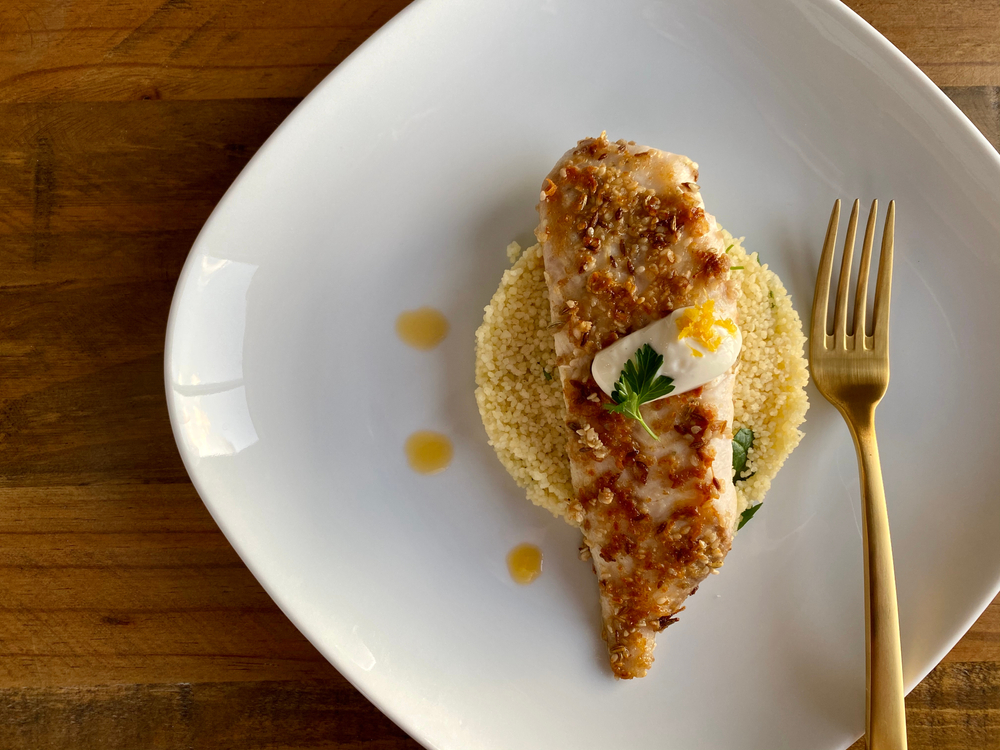Quick and Healthy Meals Using African Spices
Welcome to the flavorful world of African spices where health meets taste in the most intriguing way. African cuisine is rich with spices that not only excite the palate but also offer a wealth of health benefits. In this article, we explore how you can incorporate these exotic spices into quick and healthy meals that will transform your everyday cooking into an adventure for your taste buds.
Introduction to Incorporating African Spices in Everyday Cooking
Benefits of Using African Spices in Quick Meals
African spices aren’t just about adding heat and flavor; they come packed with antioxidants, anti-inflammatory properties, and essential nutrients that can boost your metabolism and support overall well-being. Integrating spices into your quick meals is an excellent way to enhance food’s nutritional profile while delighting your senses. Let’s dive into why these spices should become a staple in your kitchen for both their health benefits and their rich, unique flavors.
Essential African Spices for Healthy Cooking
Overview of Key Spices and Their Flavor Profiles
Understanding the key spices will elevate your culinary creations. Each African spice brings its own distinct flavor and health appeal. Berbere, for instance, presents a fiery, robust blend that can transform any dish, while Ras el Hanout offers a complex, aromatic profile with a hint of sweetness. Harissa, often found as a paste, adds a smoky, peppery kick ideal for marinades. And let’s not forget Dukkah, an Egyptian blend, which imparts a nutty crunch to your dishes. We will explore these and other African spices that promise to enrich your cooking both in taste and health benefits.
Easy Recipes with African Spices

Berbere-Spiced Vegetable Stir-Fry
This stir-fry is a quick, vibrant dish that brings the heat and flavors of Africa to your plate. Berbere, a staple Ethiopian spice blend, is rich in health-boosting ingredients like fenugreek and chili peppers. It can elevate the humble ingredients in this stir-fry, making it a perfect weekday dinner option for those who appreciate a bit of a kick in their meals. Ready in just minutes, this dish is not only bursting with flavor but nutritional value as well.
Harissa-Marinated Chicken Breasts
To incorporate a Tunisian touch to your table, try marinating your chicken breasts in harissa. This spicy, aromatic paste, used widely in North African cuisine, is packed with vitamins and minerals thanks to its combination of chili peppers, garlic, and various herbs. Not only does it tenderize the chicken and imbue it with intense flavor, but it also provides a hearty dose of health benefits. Cook the marinated chicken on the grill or in the oven for a simple yet exotic meal.
Ras el Hanout Couscous Salad
Ras el Hanout, which means “top of the shop,” is a premium spice blend that can include over a dozen spices. It brings an unparalleled depth to this couscous salad, featuring an aromatic backdrop to the fluffy grains. Full of fiber and protein, this quick-to-assemble dish is an excellent way to add excitement to your salads. The spices don’t just add flavor; they carry anti-inflammatory and antioxidant properties that are key to a healthful diet.
Suya-Spiced Grilled Vegetables
Experience the flavors of West Africa with Suya spice blend on your grilled vegetables. Suya, known for its use on skewered meats, is equally delicious on a variety of vegetables. Its bold blend of peanuts, ginger, and spices pairs wonderfully with the natural sweetness of grilled vegetables. It’s a perfect heart-healthy addition to your barbecue spread that promises a nutritional punch with every tasty bite.
Dukkah-Crusted Fish Fillets
Give your fish fillets a crusty makeover with Egypt’s beloved spice mix, Dukkah. A blend of nuts, seeds, and warm spices like coriander and cumin, Dukkah not only intensifies the flavor of the fish but provides a delightful texture contrast. This crust also seals in the moisture, resulting in succulent, flaky fish that’s high in omega-3 fatty acids—enhanced with the additional health benefits of the spices used in Dukkah.

Tips for Preparing Quick African-Inspired Meals
Meal Planning and Prep Techniques
Integrating African spices into your meals requires some planning. A weekly meal prep can be a game-changer, especially if you are new to these spices. It’s important to balance flavors when using potent spice blends. Begin by familiarizing yourself with the taste profiles of each spice and considering their combination in dishes. Batch-preparing spice mixes can save time and ensure consistency in your cooking. Marinating meats or prepping vegetable stir-fries ahead of time allows spices to infuse for deeper flavor.
Balancing Spices for Optimal Health and Flavor
When it comes to using bold flavors like those found in African spices, less can often be more. Start with modest amounts to gauge your taste preference and build up as you become more familiar with each blend’s intensity. Remember, the objective is to complement, not overpower, the primary ingredients. Additionally, freshness is key – freshly ground spices will offer more potent flavors and health benefits than their pre-ground counterparts.
Adapting African Spices to Various Dietary Needs
Ideas for Vegan, Gluten-Free, and Low-Calorie Options
African spices are incredibly versatile and can cater to a variety of dietary needs. For a vegan diet, try using a spice like Berbere to add heat to lentil-based dishes or stews, which offers a protein-rich meal. Gluten-free meals can be accentuated with a Ras el Hanout rubbed onto vegetables before roasting. If you’re watching your calorie intake, using spices like Harissa in marinades provides tons of flavor without the need for additional fats or oils in cooking.
Nutritional Benefits of African Spices in Daily Diet
How Spices Enhance Health and Wellness
African spices do more than add flavor; they are a treasure trove of health benefits. Many contain bioactive compounds that have anti-inflammatory and antimicrobial properties. Spices like turmeric, found in curry powders, have been linked to better joint health and cognitive function. Cardamom, often included in spice blends like Ras el Hanout, can help improve digestive health. By incorporating these spices into your meals, you’re not only getting the taste of Africa, but also contributing to your overall health and wellness.
FAQs on Using African Spices in Quick and Healthy Cooking
How do I get started with African spices?
Getting started with African spices is all about exploration and experimentation. Begin by picking one or two spice blends, like Berbere or Harissa, and incorporate them into dishes you already enjoy, such as soups or grilled meats. You can find these spices at specialty stores or online and start small to gradually build your confidence and familiarity with their flavors.
What are the best ways to store these spices to maintain their flavor?
To ensure your spices retain their potency, store them in airtight containers away from direct sunlight and heat. A cupboard or spice drawer is an ideal location. Make sure the area is cool and dry to prevent humidity from affecting the quality. Ground spices typically stay fresh for about six months, while whole spices can last up to a year or more.
Can I create my own African spice blends at home?
Absolutely! Creating your own African spice blends can be a rewarding experience. Start with whole spices for the freshest taste, toast them gently to release their aromatic oils, and then grind them using a mortar and pestle or a spice grinder. This practice not only ensures the freshest possible flavor but also allows you to customize the balance of the blend to suit your taste preferences.
How can I balance the flavors of strong spices in my meals?
Balancing strong spice flavors requires a bit of finesse. Begin with small quantities; you can always add more later. Taste as you cook to adjust the balance between the different spices, and consider the role of companion ingredients that can temper the intensity, such as dairy, coconut milk, or an acid like lemon juice. The key is to aim for harmony in your dishes where no single flavor overwhelms the others.
What if I can’t find a particular spice or spice blend?
If a specific African spice or blend is not available, don’t let that discourage you. Many spices have counterparts with similar flavor profiles. For instance, if you can’t find Berbere, try a combination of paprika, cayenne pepper, and a touch of ground ginger and cardamom. Online recipes can also offer DIY versions of African spice blends using more readily available ingredients.
Are they any non-spicy options for those new to African spices?
For those who prefer less heat, there are plenty of African spices and blends that deliver flavor without the burn. Dukkah, for example, relies on nuts and seeds for its distinctive taste and can be added to dishes without raising the spice level. Cumin, cardamom, coriander, and cinnamon are other African spices that add a depth of flavor without heat and can be used generously in various recipes.
